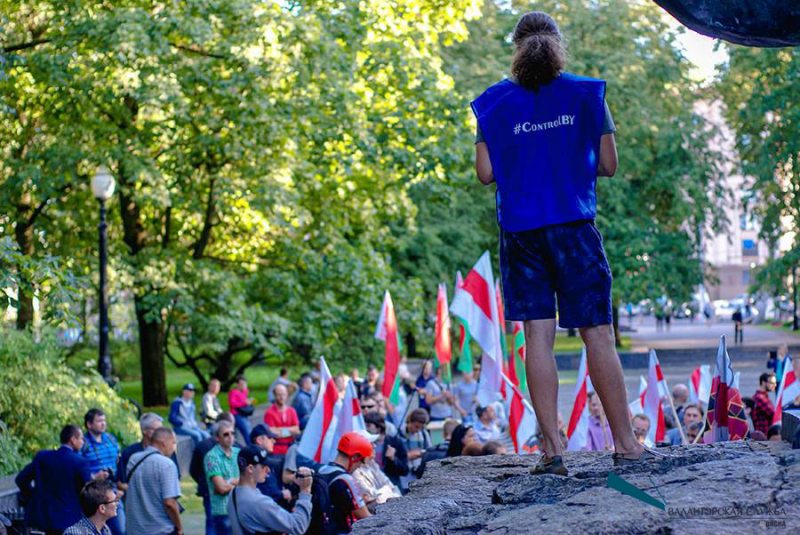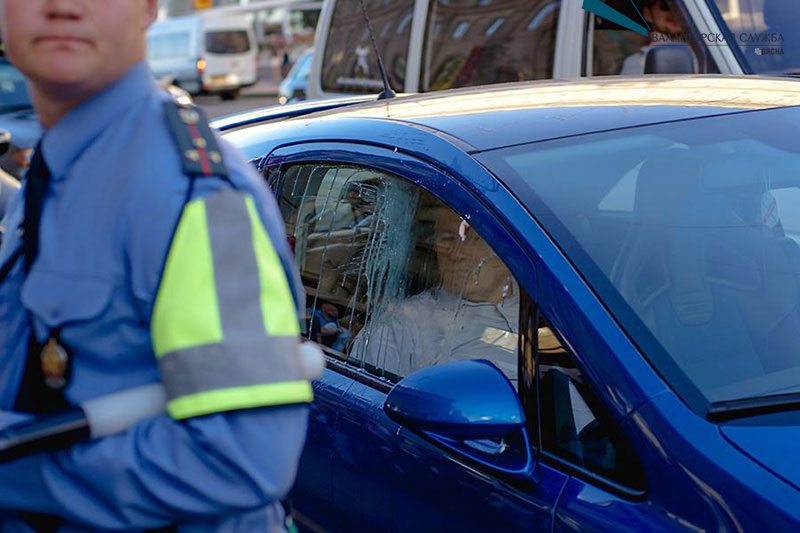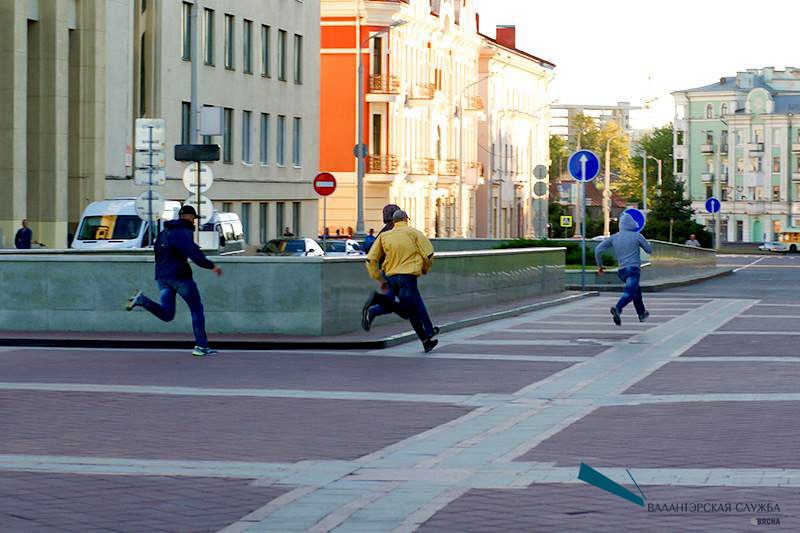Report on monitoring of the Independence Day mass action on August 25, 2016
Methodology of the monitoring
The Belarusian Helsinki Committee and the Human Rights Center Viasna have held systematic monitoring of mass events in Minsk for several years, applying consistent methodology. Volunteers are invited and taught the principles of citizen control, standards of peaceful assembly and methodology of monitoring; they are taught how to fill in the monitoring form on the spot during mass events, how to process the forms and make monitoring reports. The forms of monitoring mass events have been developed jointly by human rights organizations and touch upon aspects like: possibility to perform functions of monitors and mass media; behavior of organizers and of participants, the police; presence of emergency service. Volunteers are admitted to monitoring only with the commitment to comply with the rules and guidelines of the principles of monitoring (independence and political neutrality, description of facts, not opinions; noninterference with the events observed; adherence to the principles of law (restriction from any form of violent actions and discriminatory practices; correct behavior)). While monitoring, the monitors keep aside from participants of the demonstration. They have to be marked with badges and blue vests.
During the mass event on August 25, 2016, four trained observers monitored the event fully in person, marked with proper signs.
I. Conclusions:
- 1. The event was of peaceful character throughout the whole action (i.e. “when organizers have peaceful intentions and the assembly is of non-violent character”).
2. Lack of application and permit for holding a mass action issued beforehand cannot restrict it. The very procedure of obtaining permit for a peaceful assembly contradicts to international standards (recommendation 129.93 of the Report of the Working group on the UN Universal Periodic Review in 2015) and diminishes the right to peaceful assembly.
3. There is the negative practice of drawing up reports on administrative violations during a peaceful mass event.
4. Employees of law enforcement agencies did not perform their positive obligations fully: policemen did not respond effectively to hooligan actions from a group of five people who threw eggs at the participants of the action in Independence Square, when the event was over.
II. The course of the mass event
• Around 35 people gathered at the beginning, at 6 pm, near Yanka Kupala monument. They were holding around 15 white-red-white flags. A picket for supporting a candidate for parliament was taking place nearby, but the two events did not interfere with one another. Since 6 pm, the participants had been reading out poems, while employees of law enforcement agencies were compiling reports of administrative violation against every reader. Meantime, the number of picketers rose to 60 people, the number of flags rose to 27. Participants also used banners “Freedom to Palchys” and “Freedom to Paliyenka”. At 6:30 pm the literary readings were over, and the participants formed a column to proceed with a demonstration along the avenue up to Independence Square.
• All the way long, every crossroads was guarded by a traffic warden.
• The mass event was attended to by around 25 employees of law enforcement agencies in plain clothes and five policemen in uniform. Eight plain-clothed employees recorded the event for video. Close to the place of gathering, there was a blue minivan parked with a camera on top. Also, there was a car of traffic police. Seven representatives of the OSCE also observed the gathering.
• In the procession, at the junction with Independence Square, the column was shot at with eggs, alongside with passers-by and a car driving along Independence Avenue.
• The attack with eggs repeated when the event was over in Independence Square. First time, the attackers were not noted; the second time they attacked the demonstrators from behind, with faces hidden. The men rushed away towards Savetskaya Street, the police chased them in a car. The results of the chases are unknown.
• No interference with the work of mass media and monitors was registered.
• Organizers were not marked distinctly, but there was coordination of the column; there were no guards from the organizers’ side.
• There were no calls for aggressive actions or violence during the demonstration. From all facts mentioned above, it is obvious that the event was peaceful, as far as organizers and participants of the action are concerned.
III. Recommendations
To organizers:
* To enhance communication with law enforcement agencies and participants, to draw special attention to safe unhampered movement in the streets and at crossroads, as well as at the venue of the assembly. To ensure guards whenever possible.
To employees of law enforcement agencies:
* To protect participants of peaceful demonstrations from attacks, to prevent hooligan or other wrongful actions against participants;
* According to art. 5 of the Law On Agencies of the Interior, activities of law enforcement agencies are open to public. Based on this norm, we suggest that all employees should carry out law enforcement at public events dressed in uniform and marked with identifications signs, like lapel badges;
* To name a contact person from the police for communication with monitors, mass media and organizers of events;
* To ensure unhampered movement of the column of participants across crossroads, with regulation of the traffic.
To legislators:
* To propose amendments to legislation in order to bring it in compliance with international standards in the sphere of freedom of peaceful assembly.





















